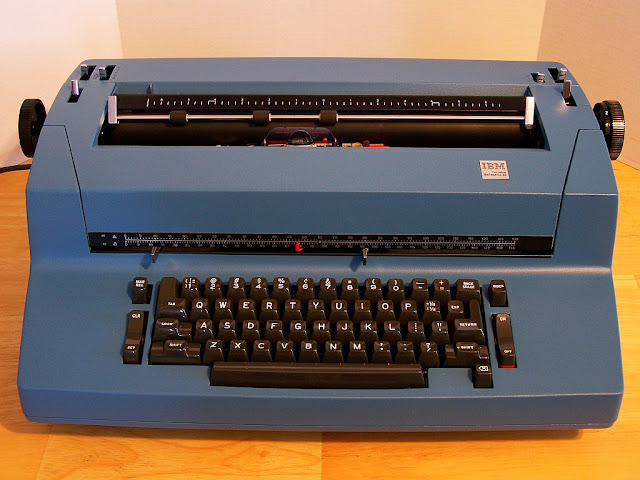While I had just left Frosty’s band, and was wondering how on Earth I was ever going to survive, I happened across a flyer advertising an afternoon classical piano recital at the Dunster House at Harvard University,
Wanting to hear a good classical pianist, I went there and was blown away by the expert playing of Laurence Berman. He was giving a recital of “Short Viennese Masterpieces, 1786 to 1923” The pieces ran the gamut from Schubert “Impromptus” to “Five Piano Pieces” by Schoenberg, with some filling by Mozart and Brahms, and all were played with power, precision, and energy.
After the concert I went up to Mr. Berman and asked him the question that obsessed me – how could he make a living playing music, especially solo piano pieces. “Oh, you can’t survive economically on just classical recitals, they pay little or nothing. My living comes from typing.” “The IBM Selectric Typewriter is an ideal instrument for building finger strength,” he went on enthusiastically. “After a day’s work in the office, my fingers and hands can handle the toughest Chopin Etudes or Brahms Sonatas. It’s as if they designed the IBM Selectric as a work-out gym for pianists. And the pay is enough to survive on –actually, if you are an expert typist, the pay is quite decent.”
So of course, I asked him what were the requirements for this type of work. “You have to type a minimum of 60 words a minute with few or no mistakes. And if you can type a perfect document, such as a legal contract or will, and make it look beautiful, the pay can be quite decent.”
This was good news! So, I spent the last of my spare money on a typewriter and practiced diligently. It took two years for me to get ‘up to snuff’, but by 1974 I was on top of my typing game, and I got hired by several office temp agencies. Together with the regular gig income I was making with Ben Petrucci, and later in Los Angeles as a studio musician and tropical band keyboardist, these jobs kept me financially afloat until the early 1980s.
Then this IBM finger-training machine vanished around 1981, when the typewriter was replaced by the word processor. Now word processors are not good for exercising fingers- they are designed to that the least pressure puts down a key, so the typist has to be constantly holding back the power with which she or he types. And this restraint is terrible for finger or arm strength. This was especially true with the 1980s models, which is why in that decade one saw so many office workers wearing arm bandages and supports, and eventually many not being able to work at all. This of course spawned a whole lot of lawsuits, which forced the big companies to modify the word-processor keyboard so it ceased to cripple their employees. However, the finger-strengthening virtue of the IBM was gone forever.
And just as bad, there was no longer any need for an expert typist for legal forms and so on. All the computer-advances meant that the worst typist in the world could erase, modify, or add beautiful and varying type-faces. Back in the electric typewriter era, someone who could produce a perfect and beautiful legal document was a valuable and rare employee. No worry about the time-clock or proper office attire! I could show up a half-hour late, dressed in my funky jeans and a t-shirt, and get my ass kissed (so to speak) by all the lawyers and executives in desperate need of my skills and beautiful and flawless documents to wow the judge and opposing attorneys. Well, the word-processor put an end to that free and glorious role! Since then one has to show up on time and in white shirt and tie. Goodbye glory and freedom, welcome to office slavery!
Luckily for me, I had just gotten my M.A. and was getting part-time teaching jobs at local colleges, so my lost typing income was replaced by the adjunct professor salary. And then in 1991, when I had become persona non grata in the world of academia, my academic references combined with my performing experience got me over 40 monthly private students in Seattle, while my spouse Rodel Baldoz got a $40,000 a year income as a medical technologist on night-shift (good money but brutally demanding work), and the final move into financial stability came when I was hired as staff keyboardist and instrumental music director for the Bethesda Lutheran Church.
But more about all that in the Seattle-Philippines part of my life (and of this auto-blogography). I do have one really funny anecdote to tell of my typing days, but that has to be reserved for my part-time professor days in the “Los Angeles” section.
As Liza did (in “Uncle Tom’s Cabin”,) who escaped to freedom by jumping from one chunk of ice to another to reach the free-state shore of the river, so I survived by jumping from one profession to the next until I finally reached the shore of freedom: my Social Security pension.

Comments
Post a Comment